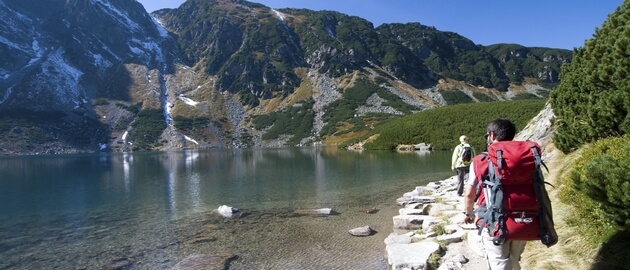
Sustainable tourism development makes sound use of tourism’s economic benefits and mitigates tourism's negative impacts. The principles of sustainable tourism can be applied to all kinds of travel and tourism - not only for special ecotourism products.
These principles are based on the three pillars of sustainability:
- Ecologically sustainable:
Sound use of natural resources respects the fragile environmental balance that characterises many tourism destinations, particularly in environmentally sensitive areas. Systematic management contributes to the protection of natural features and their conservation for future generations. Environmentally friendly technologies for the use of water and energy reduce the pressure tourism imposes upon ecosystems. - Socially equitable and adjusted to local cultures:
Sustainable tourism not only allows local people and other stakeholders to participate in decision-making processes involving tourism development which could effect them, it also ensures fair and equitable share of tourism's economic benefits. Furthermore, respect for local culture, customs and traditions and compliance with human rights aas well as adequate working conditions have to be guaranteed in the tourism sector. - Economically sustainable:
A long term and economically stable tourism development is based upon the integration of the tourism sector into local and regional economic cycles and thus guarantees that the revenues of tourism benefit the region and the local population. Adequate payment of services and infrastructure and the economic participation of the local enterprises in tourism development are crucial aspects that contribute to the improvement of living standards und support regional development. Thus, tourism provides alternatives to unsustainable economic activities.
In this sense, sustainable tourism is not a niche within the tourism industry but an element of sustainable regional development. Sustainable tourism is integrated into the regional development and also stimulates other fields of action. The interaction with other fields of economy and culture such as agriculture or monument conservation is an important aspect of sustainable tourism planning.


